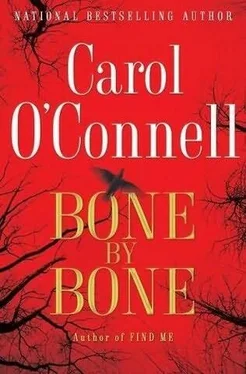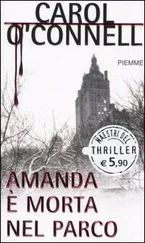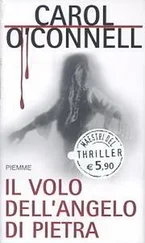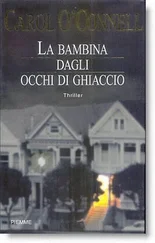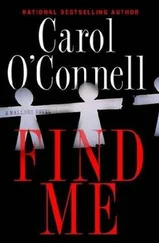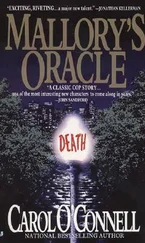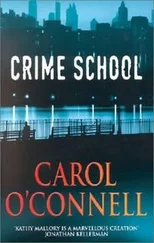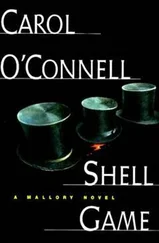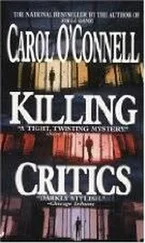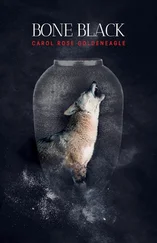She paced in front of him, hands behind her back and talking in the listen-up mode. "Your life started going off the track long before that day. I lay the blame on your mother for dying young. If she'd lived, she would've taught you how to dance and talk to little girls. You would've had an actual conversation with Isabelle Winston. The two of you should've had four kids by now. Incidentally, it's not too late for that. I realize that Belle seems a bit harsh, maybe even homicidal-"
"There are no pictures of my mother." As a child and a teenager, he had never questioned the loss of her. Other boys had mothers, but he and Josh had Hannah. "No photographs. I can't remember what she looked like."
"Of course there were pictures," she said, "dozens of them. The first time I walked into this house-uninvited-well, you know that old story-I saw your mother looking back at me from every wall. The judge cried all the time in those days. He couldn't walk into a room without seeing reminders of her. So, a week or so after her funeral, real late at night, I collected them all and brought them up here."
Hannah pulled a trunk away from the wall to get at the boxes behind it. "The next morning, the judge woke up, looked at the walls, then took a deep breath and got on with his life. We never talked about it." She opened a box and pulled out framed photographs, handing them to Oren, one by one. "You can see how pretty she was, but that's not what people remember best. You ask and they'll say she loved to dance."
The housekeeper picked up a small wooden chest. "This is why I came up here." She lifted the tiny latch, opened the lid and pulled out a frayed teething ring. "This was your stuff. Nothing of Josh's. You two weren't so much alike when you were small. He was on the frail side, but you always looked like a little man in training." She plucked a picture from the box and held it up to him.
He stared at the snapshot of a baby no older than two. Hannah placed the small chest in his hands and backed away a few steps as he pored through the contents. There were a few small toys, a lock of hair tied by a ribbon, and photographs of husband and wife taking turns with the camera to picture themselves with their first baby.
"That's the judge's invisible box," said Hannah, "the one he carries around when he walks in his sleep. It's the only box in the house that opens with a latch. You saw the way he opened it in the kitchen the other night. I told you I'd seen it before. Last night, he carried it to the cemetery to ask for a miracle. Do you get it now?"
He shook his head.
She threw up her arms. "That first time in the kitchen, he said to your dead mother, 'Our child is lost. I need another miracle.' You're the lost child, Oren."
"No, that was Josh. The judge blamed me for-"
"He never did."
"He sent me away. He couldn't stand the sight of me."
She silenced him with one finger pressed to his lips. "After a time, the judge came to terms with the idea that Josh was dead. But not you. You just would not give him up-always tearing around those woods-days at a time. There was a danger that you might die out there, half starved, no water. Maybe there'd come a day when we couldn't find you and bring you safe home. Your father sent you away to finish school in a place with no trees-so you couldn't get lost again. It was your idea to stay away-to join the Army. That mystified him, and it hurt him, too. That old man loves you beyond reason, and he missed you every single day that you were gone. The reason he kept the house like a damn museum-that wasn't on account of Josh. He wanted everything to be the same on the day when you found your way home."
***
Isabelle had spent half the morning in bed, using a pillow to muffle the sounds of workmen inside the house and out in the yard. She had spent most of the night reading the more recent birder logs written years after the disappearance of Joshua Hobbs-her mother's obsession. The town had become smaller and more claustrophobic on each succeeding page. Some birds had eyes that glowed in the darkness as they traveled single file up the mountainside, and these were the witchboard people.
Showered and dressed, she unlocked her bedroom door. Last night was the first time she had ever thought to lock it. But she had gone to bed with no fears for her mother. She had believed Addison when he professed to love his wife-madly.
Isabelle's fear had come later, page after page of it.
When she smoothed out the bedding, she found a journal in the folds of the sheet. This was the one that had given her nightmares. She held the small book in one hand, weighing the consequences of its destruction. This one might be more dangerous than the journals she had left in the care of the judge. One day soon, she and Oren Hobbs must talk, but not of this. She planned to fling it into the sea.
This journal began with a séance in the woods. Wings spread, a young lark hovered over a table ringed with monsters, and it sang for them, "Oren, help me. Find me. Take me home."

On the night of Sarah Winston's annual birthday ball, the lodge is more dazzling than the Sun King's Palace. Strings of bright lights outline every beam, every window and wall; they run along the rooftop and upward to describe circles around the high castle tower.
So wrote Ferris Monty many years ago when these were all the details he could glean firsthand as an outsider looking in. And tonight-oh, tonight -he piloted his yellow Rolls-Royce up the winding driveway, fairly bouncing on the front seat, giddy as any ten-year-old with Cinderella dreams.
The car keys were handed off to a valet, and Ferris approached the lodge, resplendent in a new suit of red velvet, his nose held high. He was drunk with anticipation as he stood before the doorman, a large thug in a tuxedo, and handed over his personal invitation from Isabelle Winston- a true princess. The thug stood to one side, and Ferris was allowed to enter. Crossing the crowded foyer, he was accosted by a waiter bearing a tray of champagne flutes. Glass in hand, Ferris sauntered into the massive front room and the babble of conversations riding below the music of an orchestra. The bandstand was next to a gigantic window with the view of a second ballroom under the stars. Beyond that outdoor dance floor was a parking lot of luxury cars and ancient wrecks. Ferris wondered how many trees Ad Winston had killed to accommodate the vehicles of more than a thousand guests.
A tourist in fantasyland, he saw the most amazing sights looming over him, a flock of birds, gigantic and fanciful, carved in ice and presiding over platters piled high with lobster tails and giant shrimp. The cold air rising from these sculptures warred with the heat of a chandelier lit with hundreds of electric candles. It was like staring into the sun.
The walls were lined with real candles in sconces, with tables for two, and others had chairs for six. The orchestra changed its tempo to a livelier beat and the floor quickly filled with people. All around him, designer finery danced with secondhand clothes. Outlaw movie folk and grafting politicians commingled with store clerks and construction workers. A pedophile rock star danced past him. Oh, and there, bald as a cue ball, was a famous model-a killer drunk driver-in the arms of the postmaster.
When the newspaper syndicate tired of the story about a lost boy's bones, here, swirling round him, was enough material to provide months of columns and television interviews. And somewhere in this gathering was an ending for his book.
His pen vibrated in his pocket.
Oren pulled out a chair to seat Hannah at the table reserved for the judge's party.
Читать дальше
